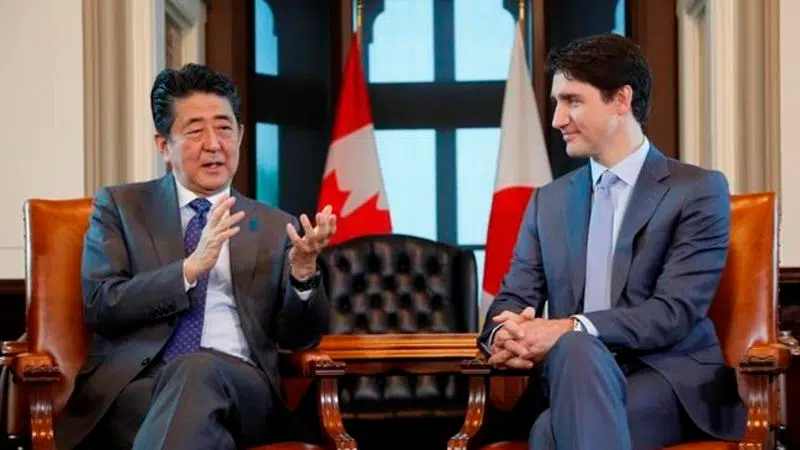
Abe, Trudeau tout trade gains without U.S. participation in Pacific Rim pact
OTTAWA — Japanese Prime Minister Shinzo Abe’s whirlwind visit to Ottawa this weekend offered the Liberal government a rare chance to trumpet a strong international alliance in the face of unyielding strain with its two top trading partners.
But a gaffe by Prime Minister Justin Trudeau — referring twice to strong ties between Canada and China, not Japan — affixed a jarring asterisk to an otherwise warm and upbeat meeting between two allies facing the same common threats and challenges.
Trudeau kicked off a Sunday morning photo-op in his Parliament Hill office noting 90 years of diplomatic relations between “Canada and China,” but immediately corrected himself to Japan. Later, in his opening remarks at a joint press conference, Trudeau said: “I am very, very glad that you were able to make such time for the tremendous friendship that we celebrate every day between Canada and China. Thank you, Shinzo.”


